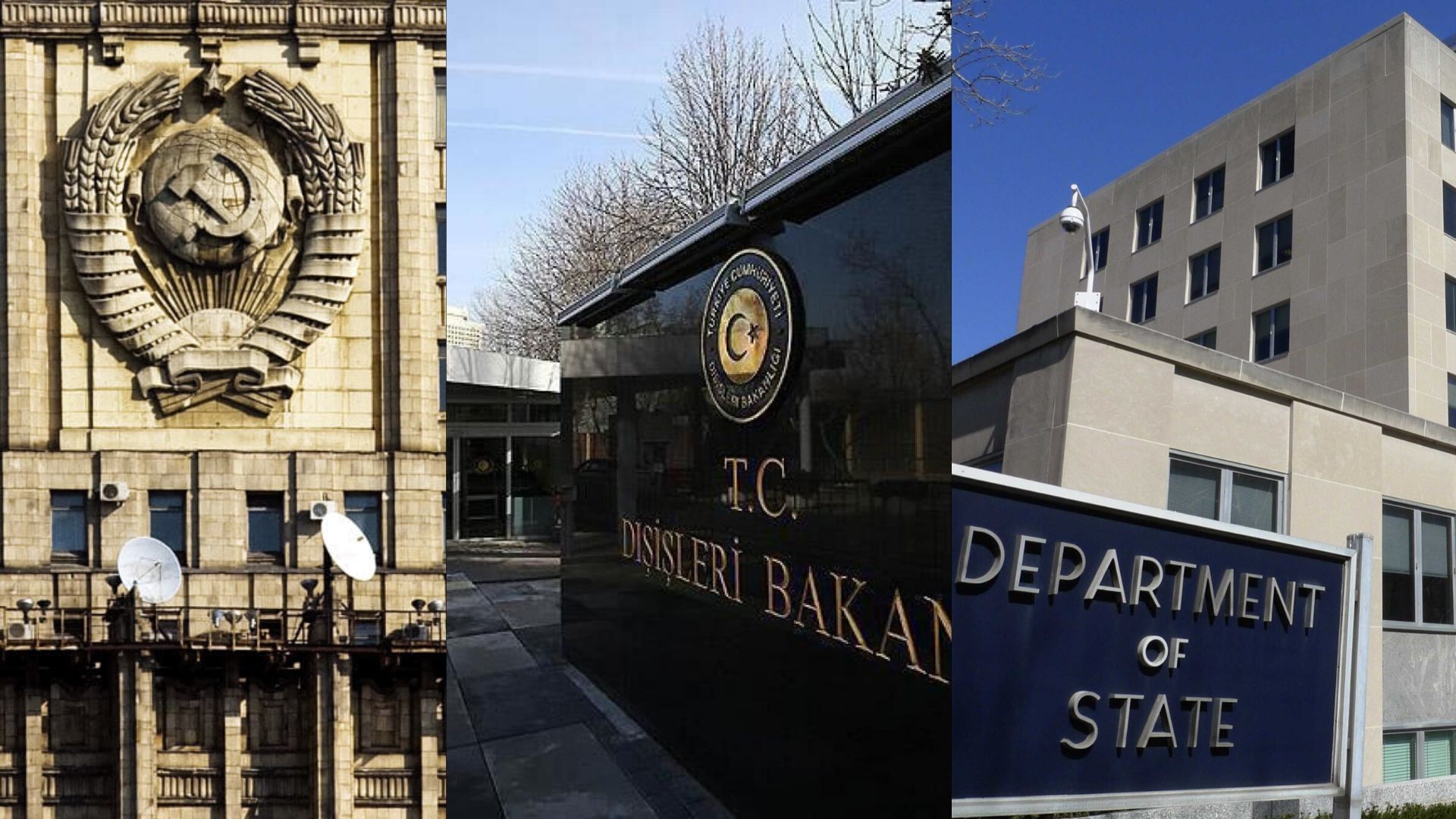Turkish and Russian relations continue to exist in a wide variety of fields. The issue on which the relationship between these two countries is at the forefront is energy. As it is known, as technologies develop, the need for energy resources also increases and the most important supplier of this need is Russia in the world. Russia, which has rich underground resources, shares its resources with other countries through strategic plans. Turkey plays an important role in this strategic plan. Because Turkey’s geographical position is quite suitable for transmitting these resources to other countries and to itself.
In this article, the relationship between Turkey and Russia in energy transmission lines will be discussed. Primarily, to understand the relationship between these two countries in energy transmission lines, the relations between the two will be examined from a general point of view. Then, as mentioned in the introduction, Turkey’s geopolitical position on this topic will be explained with the help of a map. Then again, with the help of maps showing the pipelines, two important natural gas pipelines between Russia and Turkey that are currently in use will be mentioned. Finally, the article will be concluded by talking about the latest status of the energy transmission lines in Turkish-Russian relations.
An Overview of Russia-Turkey Relations
Before examining the energy transmission lines between Russia and Turkey, we need to understand the relationship between these two countries from a general point of view. As we know, Russia and Turkey have a deep-rooted relationship historically. For this reason, Turkish-Russian relations have gone through many difficulties and at the same time many crises have been experienced. The end of the Cold War and the disintegration of the USSR in the 1990s brought a new perspective to Turkish-Russian relations.
The relations between these two countries had important developments in the field of economy in the 1990s. Then, in the 2000s, these relations gained great momentum, again, especially in the field of economy. These relations, which gained momentum, became institutional with the established High-Level Cooperation Council (HLCC). The relations between these two countries are mostly based on economy and trade. Also, energy covers the largest part of the trade area. Energy is very important in Turkish and Russian relations and like the rest of the world, Turkey’s important energy supplier is Russia. Another important area of the relationship between these two countries is tourism. This area is important for bilateral relations. Turkey is an important tourism center for Russia (Relations between Turkey and the Russian Federation / Rep. of Turkey Ministry of Foreign Affairs, n.d.). We can say that all these keep bilateral relations alive between the two countries.
Geopolitical importance of Turkey for energy lines
Turkey’s geographical location has attracted the attention of other countries for centuries. It acts as a bridge connecting Europe and Asia. At the same time, due to this location, we can say that it is like a bridge between energy resources and international markets. So, Turkey’s geopolitical position is very important for energy lines because Turkey has energy transit lines. It carries energy both to itself and to another country. In this case, for Russia, the world’s leading energy supplier, Turkey is at the forefront with its energy transit lines.


We can understand the importance mentioned with this map prepared by BOTAŞ. The oil and natural gas lines owned by Turkey are shown on this map. As can be seen, Turkey provides the energy transition between the East and the West. It is also the transit point for the energy transported from Russia to Europe. In fact, Turkey’s importance in the field of energy stems from the surrounding countries due to its location. In other words, Turkey is actually located near countries with significant energy resources. Thus, the interaction between regions with important energy resources and energy markets makes Turkey’s position more important (Tekin & Walterova, 2007).
Current Energy Lines between Turkey and Russia
Since the 2000s, the main subject of relations between Turkey and Russia has been energy and the distribution of this energy. Important transit points and vehicles have been determined for this distribution to be provided over Turkey. In this part, these energy transit lines will be mentioned one by one.
First of all, the energy relations between Turkey and Russia started to develop after the First Economic-Technological Cooperation Agreement was signed between the USSR and the Republic of Turkey in 1967. Then the natural gas agreement signed between the two countries in 1986, during the days when the Cold War period was most violent, marked the beginning of a new era. This agreement is for 25 years and Turkey’s natural gas transportation and trade started with this agreement in 1987, the first natural gas import began.
Firstly, the natural gas pipeline between Russia and Turkey is the ‘‘Blue Stream Gas Pipeline’’. This pipeline is a large pipeline located in the Black Sea. The length of this pipeline is 1213 kilometers and 16 billion cubic meters (bcm) of natural gas is transported annually. It was opened in February 2003, but Turkey has been providing the needed natural gas from this pipeline since 2002. The pipeline from Russia continues from the bottom of the Black Sea, first to the Black Sea coast of Turkey, and then to Ankara, the center of Turkey (Blue Stream Natural Gas Pipeline, Russia, 2022)


Next to the Blue Stream natural gas pipeline we see in the picture, ‘‘the TurkStream Gas Pipeline’’ is the second energy line to be mentioned. 31 billion cubic meters (bcm) of gas pass through this pipeline annually. This natural gas pipeline supplies Russia’s natural gas reserves to Kırklareli, Turkey via the Black Sea, to meet the energy needs of both Turkey and south and southeast Europe. Also, it creates a reliable energy source for Europe. It also plays an important role in the development of Turkey’s economy. (TurkStream Project’s Website)
Although the political relations between Turkey and Russia seem problematic, these two countries meet on an important common ground in terms of tourism and energy, and in particular, the economic ties between these two countries are quite strong. Moreover, the agreements made between Tukey and Russia are long-term agreements. For this reason, it seems that Turkey will remain more dependent on Russian energy for many years. At the same time, we can say that Russia has no other way than Turkey while distributing its energy.
In light of all this information, we can say the following; The deep-rooted relations between Russia and Turkey are getting stronger today through energy. While Russia continues to be the world’s energy exporter, the importance of Turkey’s position will not disappear but will increase. We talked about the importance of Turkey’s geopolitical position for energy transmission lines. In line with this information, we can easily say that as this situation continues, the foreign policy attitudes of these two countries will be shaped by energy.
BIBLIOGRAPHY
Blue Stream Natural Gas Pipeline, Russia. (2022, March 31). NS Energy. Retrieved May 13, 2022, from https://www.nsenergybusiness.com/projects/blue-stream-natural-gas-pipeline/
Relations between Turkey and the Russian Federation / Rep. of Turkey Ministry of Foreign Affairs. (n.d.). Republic of Türkiye Ministry of Foreign Affairs. Retrieved May 13, 2022, from https://www-mfa-gov-tr.translate.goog/relations-between-turkey-and-the-russian-federation.en.mfa?_x_tr_sl=en&_x_tr_tl=tr&_x_tr_hl=tr&_x_tr_pto=wapp#:%7E:text=Economic%20and%20trade%20relations%20constitute,and%2022%2C454%20billion%20USD%20imports
Tekin, A., & Walterova, I. (2007). Turkey’s Geopolitical Role: The Energy Angle. Middle East Policy, 14(1), 84–94. https://doi.org/10.1111/j.1475-4967.2007.00286.x











